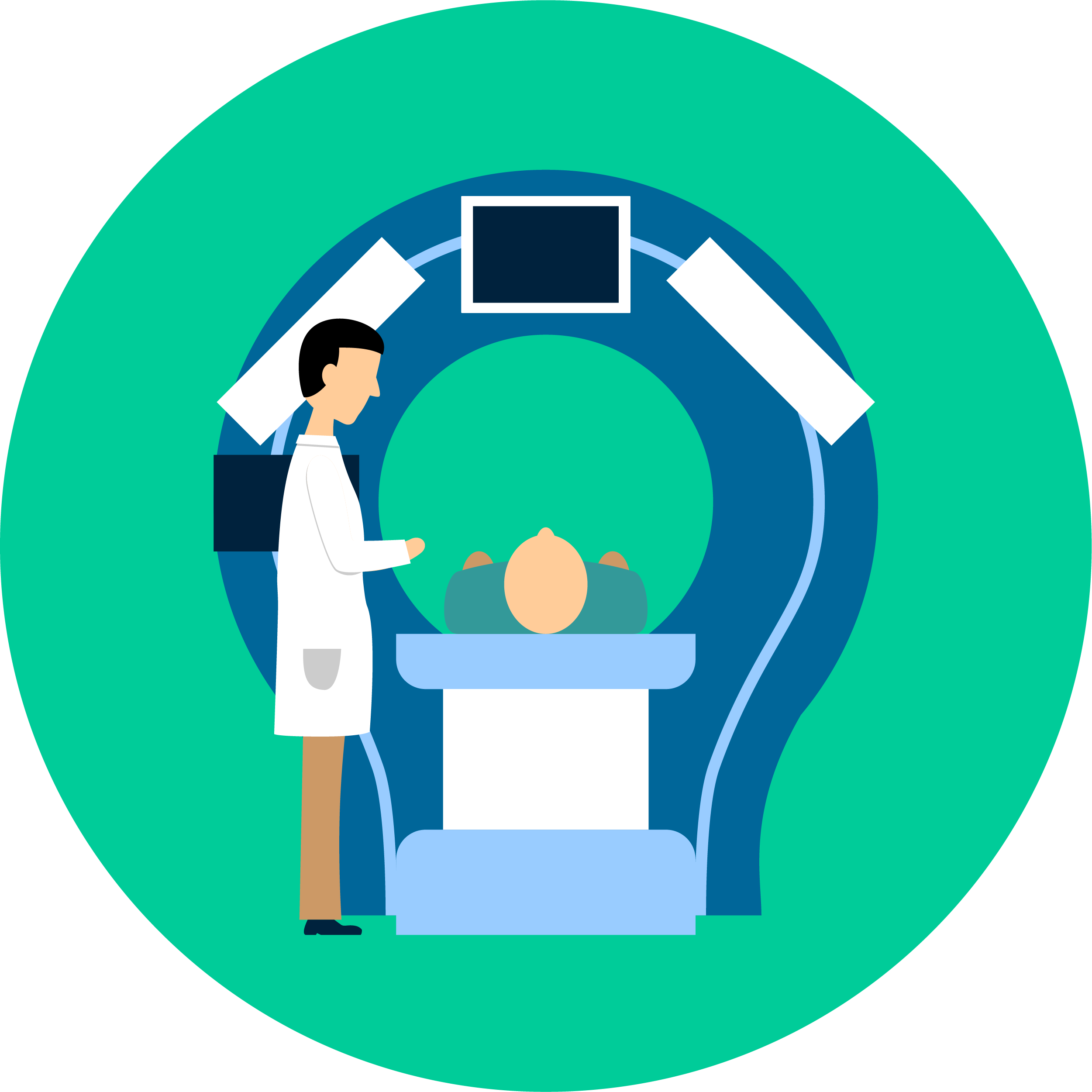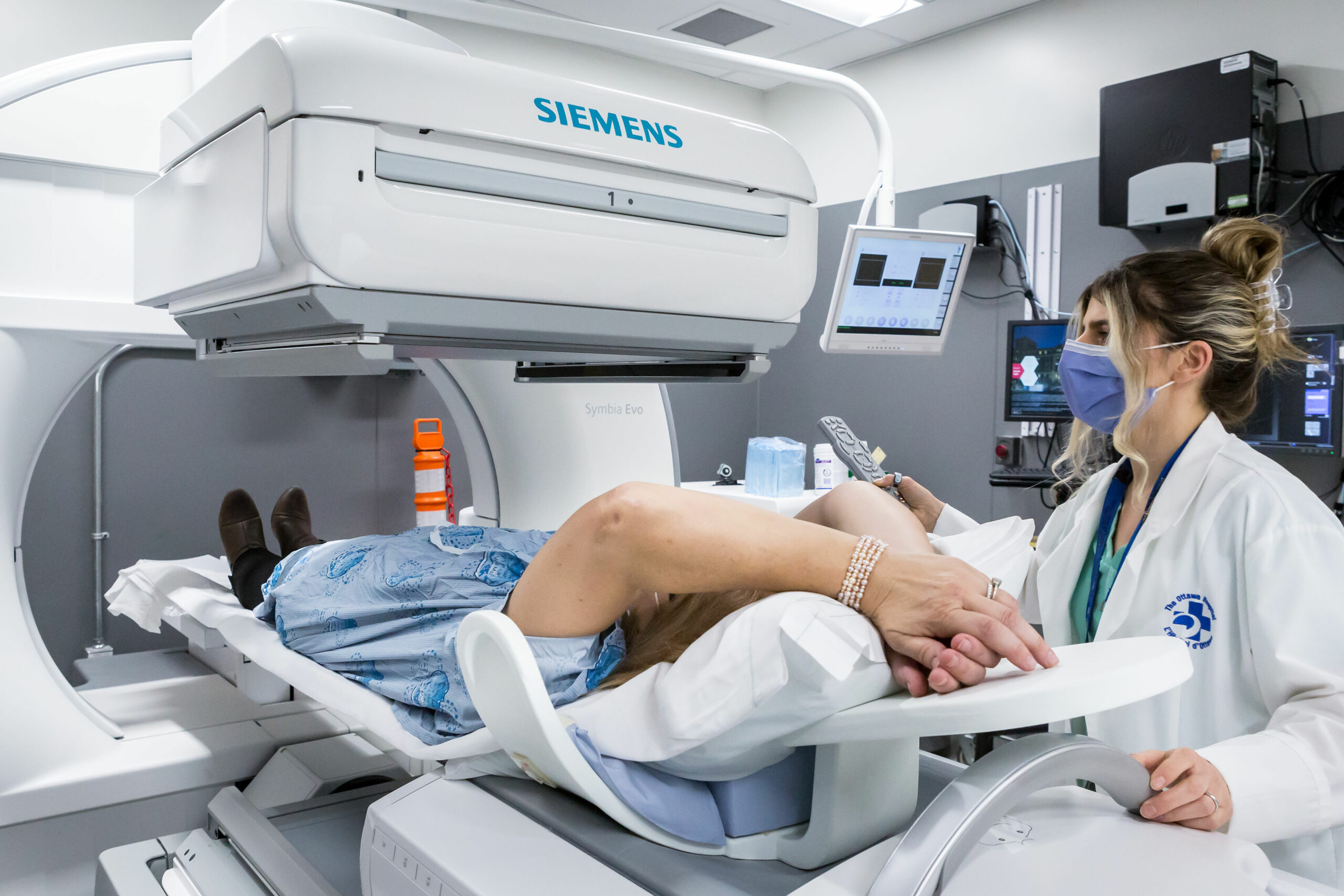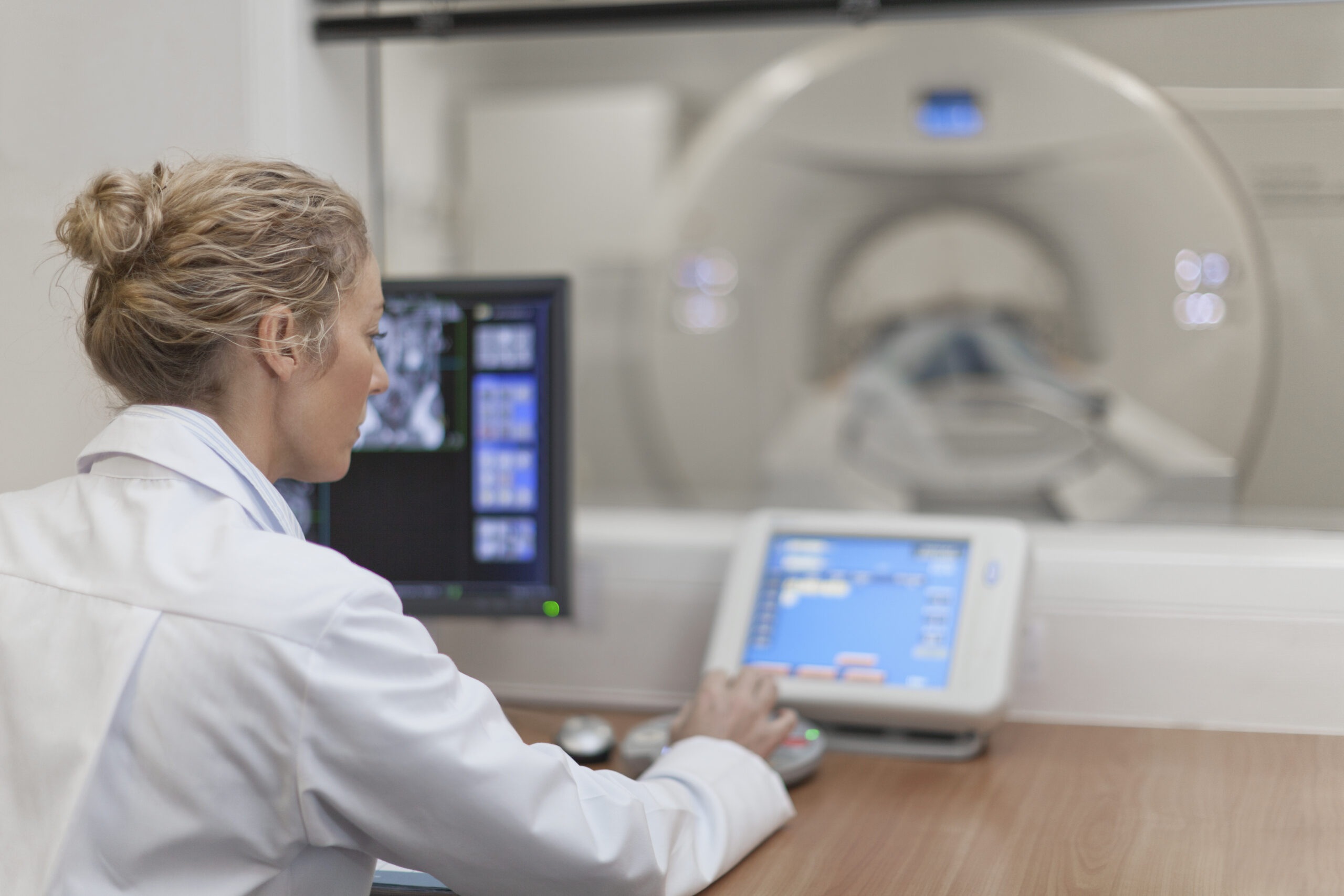
Nuclear Medicine

Medical Radiation Technologists
practicing Nuclear Medicine
provide physicians with diagnostic images that help pinpoint the nature of a disease, and how it is affecting your body. They are essential to the hospital workflow and crucial in providing you compassionate patient care. Their expertise in nuclear medicine is vital for providing diagnostic information that helps your physician or care provider know what is going on and make decisions for your care in the future.
Specialized Expertise, Compassionate Care
MRTs practicing Nuclear Medicine have years of education and training required to provide you with quality care. They have extensive knowledge of physics, anatomy, pathology, radiation safety and physiology that they use to obtain the best possible images and adapt the exam to your individual needs.
They will prepare you for the test by explaining how they use radioactive materials (known as radiopharmaceuticals) for their imaging. Many nuclear medicine tests use an intravenous (IV) injection. It is the MRT that places the IV and then moves you into the position you need to be in for the imaging portion of the test. They will then operate the equipment so that you get the best images possible.
You will encounter an MRT practicing nuclear medicine if you are scheduled for a PET scan, a bone scan or a SPECT scan, just to name a few. MRTs practicing Nuclear Medicine are the expert professionals that will be taking care of you and your family during these exams. They will be present during the whole procedure, to ensure you are safe, comfortable and take the images that will be used to answer your physician’s questions about your health. They will educate you on what is going to happen and are your primary contact to answer any questions you may have about your nuclear medicine test or aftercare.
FAQs about
Nuclear Medicine

